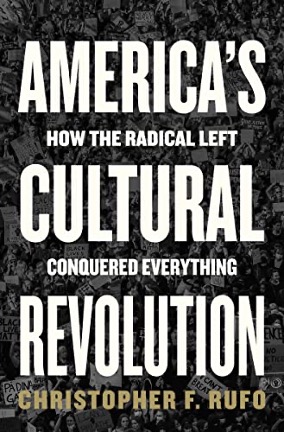An end-of-year collection of interesting and insightful passages.
Caginess and lack of explanations
“The Clinton Foundation … is a bit unique. Plenty of politicians start organizations when they leave office, but few (if any) have matched the profile and reach of the Clinton Foundation. …
“Between 2001 and 2015—predating Hillary Clinton’s presidential campaign but overlapping her stint as secretary of state” during President Barack Obama’s administration—the Clinton Foundation “raised an estimated $2 billion. Most of that (an estimated 97 percent) stayed with the foundation—which is another way of saying they did their own work rather than acting as a pass-through to other charities. And as a charitable organization, the foundation could take donations from anyone, with no limits attached.
…
“For other politicians, the caginess and lack of explanations might suggest something nefarious.”
— Matt K. Lewis, Filthy Rich Politicians: The Swamp Creatures, Latte Liberals, and Ruling-Class Elites Cashing in on America, reviewed in “The Clinton Foundation in Filthy Rich Politicians,” July 19, 2023
***
Humble values and institutions of the common man
“[T]o be successful, the architects of the counter-revolution must develop a new political vocabulary with power to break through the racialist and bureaucratic narratives, tap into the deep reservoir of popular sentiment that will provide the basis for mass support, and design a series of policies that will permanently sever the connection between the critical ideologies and administrative power.
…
“The principles of the society under counter-revolution are not oriented toward sweeping reversals and absolutes, but toward the protection of the humble values and institutions of the common man: family, faith, work, community, country.”
— Christopher Rufo, America’s Cultural Revolution: How the Radical Left Conquered Everything, reviewed in “La Trahison des Clercs, Revolt of the Public, America’s Cultural Revolution, and active citizens,” August 21, 2023

***
Nonprofits are the deep state
“It’s true that nonprofits can be more reliable, more responsible, and better resourced than less ‘official’ groups. It’s also true that nonprofits can be overly cautious, mired in internal bureaucracy, structurally inclined toward centrism, and extraordinarily risk-averse. …
…
“[T]his line of criticism has nothing to do with the leftist bona fides of individuals who work for left-leaning nonprofits. Indeed, many of the nonprofit workers I’ve known have been very committed radicals. But this is precisely the point: nonprofits tend to be staffed by leftists and structurally conservative. They avoid risk because risk can undermine the continuing operations of the organizations. They resist change because implementing change can result in reprisals from authority within a given nonprofit. They avoid direct action and extralegal means because they have their special tax status to protect. The nonprofit sector’s conservatism isn’t about the people but about the nature of all institutions. It’s also about the power of inertia; as [Paul] Klein noted, ‘Many charities are mired in an old approach to social change that is also reflected in how they raise funds.’ …
“[N]onprofits are the deep state of American political activism. They have influence beyond their numbers, they can direct the course of broad movements that should rightfully be led by volunteer organizers, and they pull those movements toward incrementalism and working within the system regardless of the radicalism of their employees.
— Fredrick deBoer, How Elites Ate the Social Justice Movement, reviewed in “A self-protective ‘deep state’ in the nonprofit industrial complex,” October 16, 2023
***
Anticommunism and less-sinister liberalism
The “organizations of the college Right” were bound “together through the Vietnam War and civil rights era, they claimed, was anticommunism. What they were actually united by was something much less sinister: liberalism.
…
“The Right’s campus mobilization was less an organic youth endeavor than a top-down directive from funding giants in the larger movement …. Major benefactors included Harold Luhnow of the William Volker Fund, businessman Charles Koch, former New Jersey governor Charles Edison, banking and oil magnate Richard Mellon Scaife, philanthropist Henry Salvatori, and others connected through direct mail operations by fundraisers Marvin Liebman and Richard Viguerie.”
— Lauren Lassabe Shepherd, Resistance from the Right: Conservatives and the Campus Wars in Modern America, reviewed in “Philanthropy and the campus wars—and later, the larger culture war—in Resistance from the Right,” October 23, 2023

***
From the wealthiest to the best
“Aristotle recognized oligarchy and oligarchs as a deviant constitutional form—deviant because it was less just. So, ethical oligarch behavior is self-liquidation, in the sense that oligarchs would need to become aristocrats (society’s best people), not society’s wealthiest people. To the extent that oligarchs help a society’s members to live a good life, they are moving in that direction.
“Philanthropy may be one way in which oligarchs can make that transition.”
— David Lingelbach and Valentina Rodríguez Guerra, The Oligarchs’ Grip: Fusing Wealth and Power, reviewed in “Philanthropy in The Oligarchs’ Grip,” November 16, 2023



